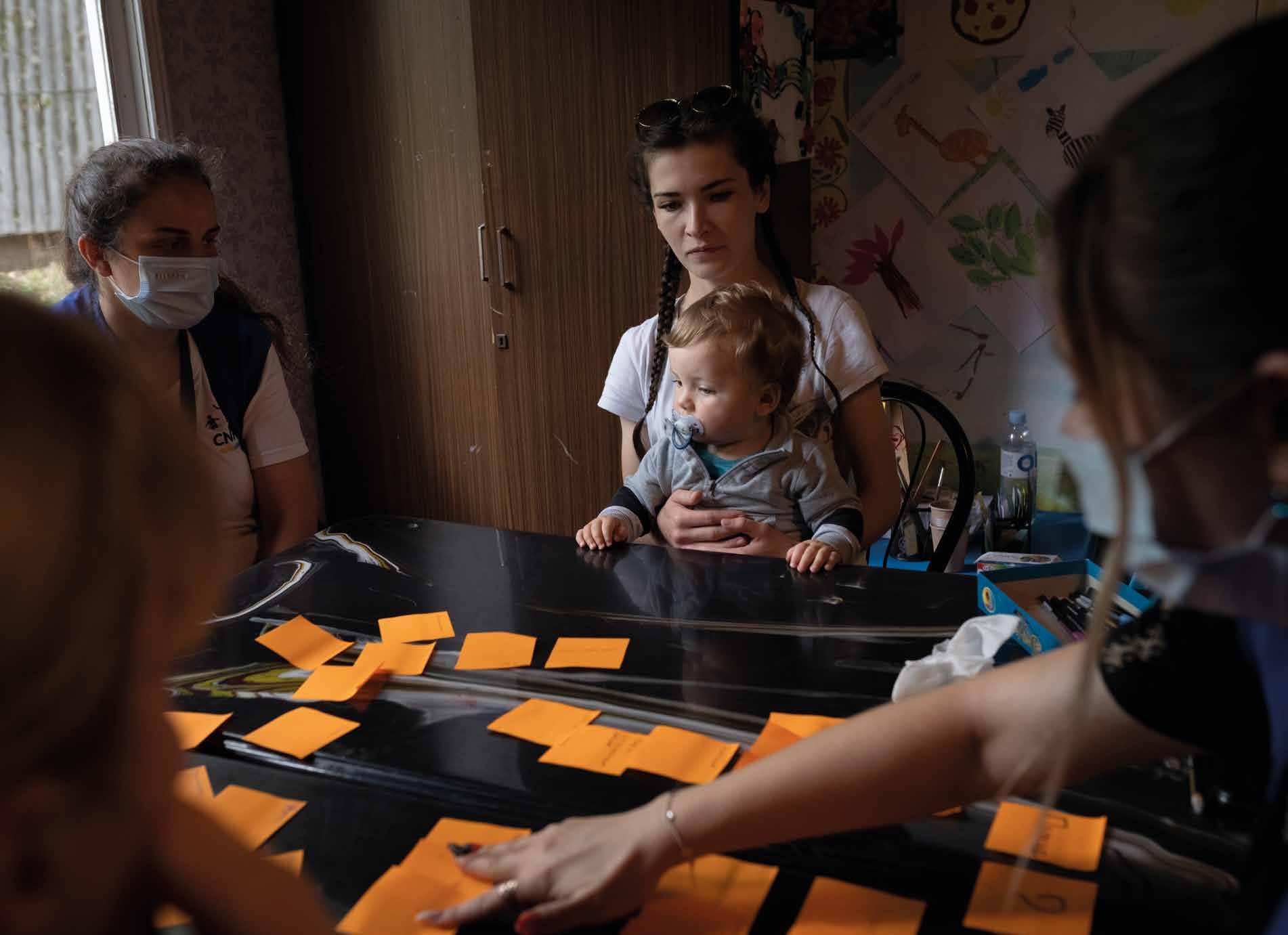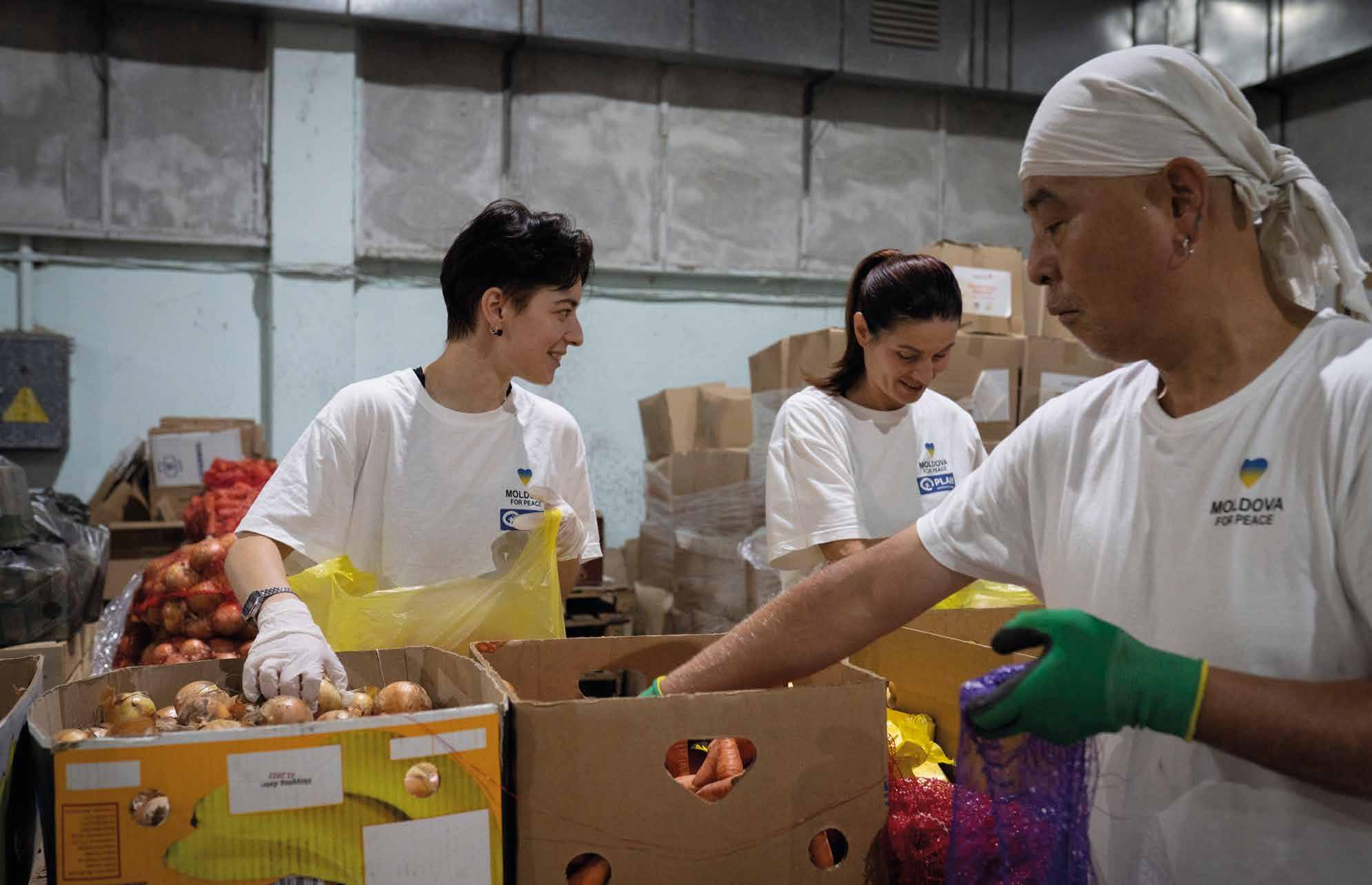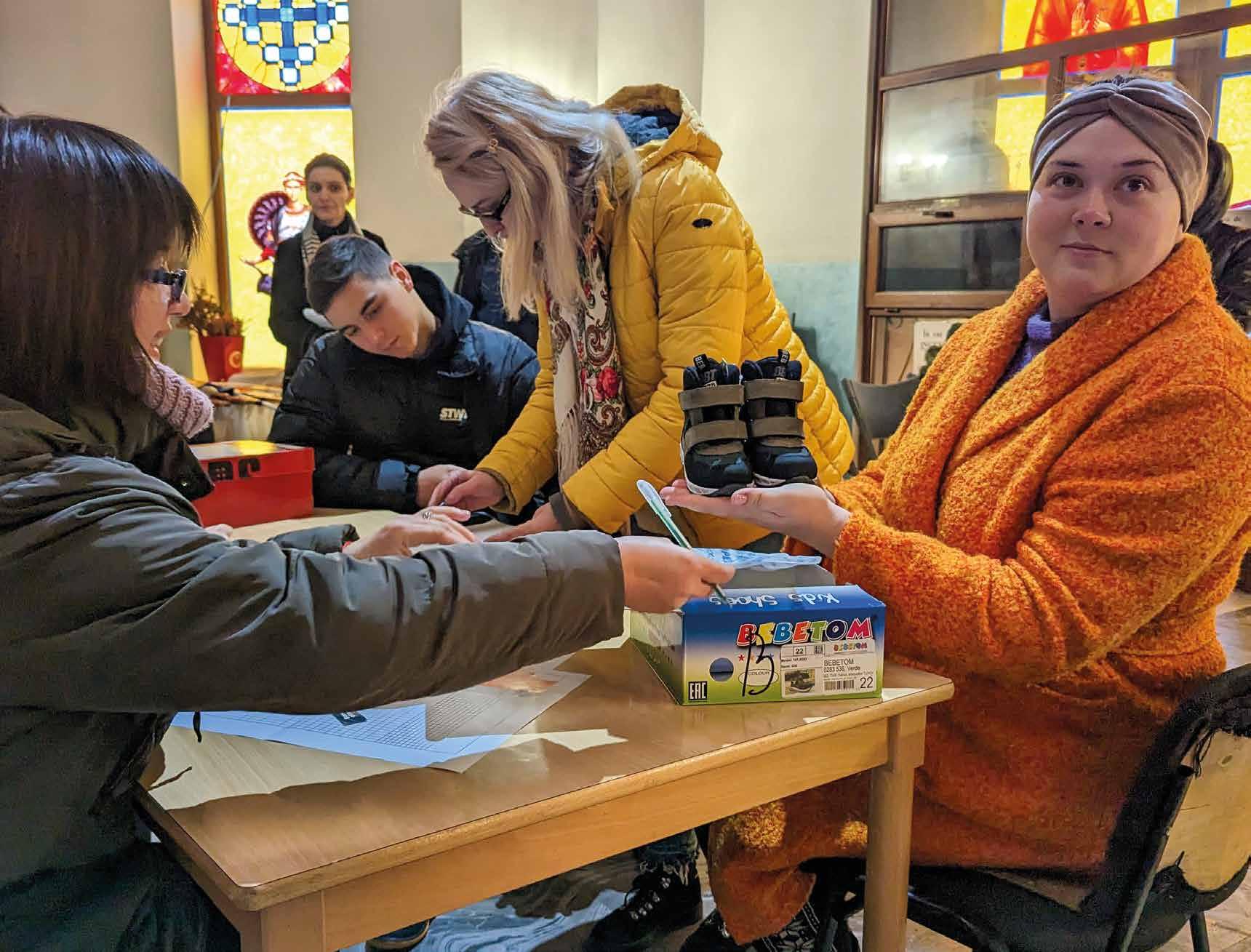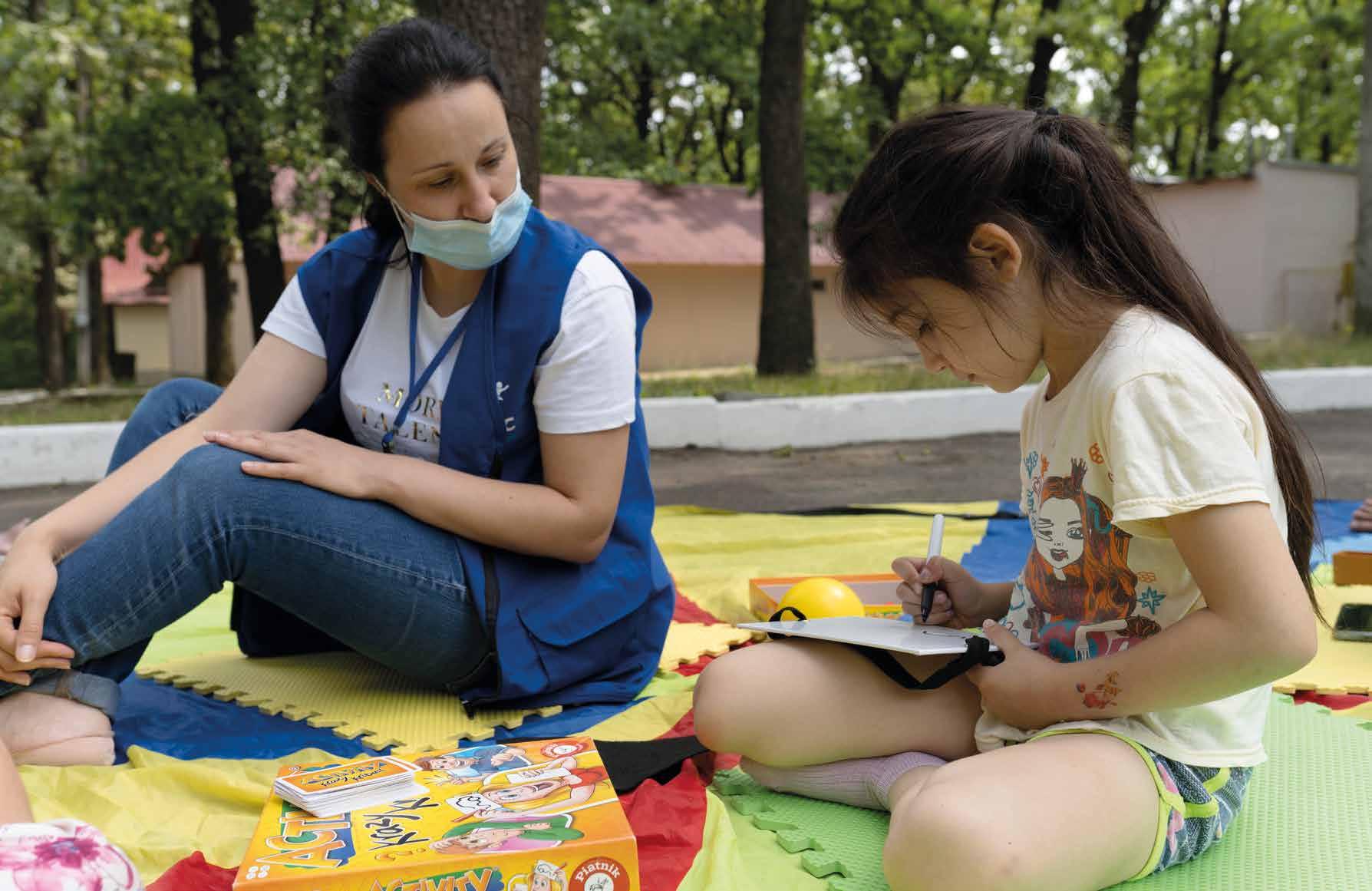
3 minute read
HOW WE HELPED: MOLDOVA SVETLANA
More than 700,000 refugees, mostly women and children, have arrived in Moldova since the start of the conflict in February 2022. Many have moved on to other countries, but 108,900 of whom nearly half are aged under 18 have chosen to remain in Moldova. Even though the rate of arrivals has slowed, Moldova continues to have the highest number of Ukrainian refugees per capita of any country in Europe. At the same time, Moldova is one of the poorest countries in Europe, facing an ongoing economic crisis, rising prices, and significant pressure on public resources. Despite the challenging circumstances, the country remains committed to welcoming refugees, but continued input from humanitarian organisations is crucial to helping refugees meet their needs for safety and security and supporting integration into host communities.
Four DEC member charities are supporting the humanitarian response in Moldova, providing border support (including mobile teams providing protection services, information, legal support, and counselling); cash assistance to cover rent, food, health and education expenses; food assistance (hot meals and food parcels containing family and baby food items); hygiene and dignity kits; and protection support, particularly for women and children, including safe spaces, individual counselling sessions, and safeguarding and case management training for local staff.
MOLDOVA: EXPENDITURE BY SECTOR
Phase 2a confirmed budget £7.7 million
Phase 2a 6 month expenditure £3.3 million
Phase 2a 6 month expenditure by local/national partners £2.1 million
48,400 people received food assistance

26,800 people received multi-purpose cash assistance
10,600 people received legal assistance
5,100 people received hygiene kits
During the reporting period, DEC funds have been used to provide cash assistance to meet expenses linked to the winter season, such as warm clothes, paying for heating, and covering medical expenses. One DEC member charity provided ‘cash for winterisation’ to 2,700 households (8,100 individuals) from both refugee and host communities. The programme started in November 2022 and ran for five months, providing each household with a monthly cash grant. In addition, in response to requests from local social workers and affected households for assistance with winter shoes for children, DEC funds supported a local partner organisation to supply shoes to refugees in 26 districts, covering 75% of the country.
Another DEC member charity has been supporting a ‘dignity centre’: a supermarket-like distribution point for food, clothing and other family and household items provided to self-registered refugees who are referred on a weekly basis through a local partner organisation’s online platform. After referral, refugees receive a ticket with which they can access

HOW WE HELPED: WINTERISATION VICTORIA
the market and shop with the allocated ‘points’. Each member of the family receives the same allocation of ‘points’ to use in the market so there is equality of allocation per person, but differences in the total amount per family based on the family size. According to an assessment conducted by a refugee support group, the level of satisfaction of participants in the scheme is very high.
1,300 people were reached with winterisation activities through vouchers and/or winter kits
HOW WE HELPED: PROTECTION
After more than six months of conflict in Ukraine, most refugees arriving in Moldova during the reporting period had extremely limited financial resources, making them vulnerable to exploitation and abuse. DEC member charities, alongside their local partners continued to focus on protection through the provision of information, legal advice (including support with applying for temporary protection), counselling, and social assistance to reduce vulnerability. In partnership with antitrafficking organisations, DEC funds also supported specific activities related to human trafficking and gender-based violence, including a hotline for people who had been trafficked or are at risk of human trafficking.
One DEC member charity provided targeted support to children through a mobile team of outreach staff who provided information and support, in direct discussions with the children using age-appropriate language, about their rights to safety and security, about further support available to them, and about opportunities to enrol in schools and vocational training courses. The member charity also supported a programme with a partner organisation offering direct, specialised multidisciplinary services to children who are survivors of abuse. The programme, whose highly qualified staff have wide experience of working with traumatised and distressed
Using theatre to raise awareness
children, offered long-term therapy to child survivors of violence and their caregivers, as well as individual and group parenting sessions for adults.

15,200 people accessed mental health and psychosocial support services
2,100 people participated in social integration activities
1,200 people were provided with protection services
A key way to provide safety and security for refugees is to promote understanding and acceptance among and build connections with host communities. One DEC member charity supported a National Social Theatre Festival which brings together organisations and individuals working with, or led by young people. As part of the process, two sessions were conducted to train 108 people on how social theatre can be a tool to address issues in the community. The youth teams will continue to organise social theatre presentations in the community with the aim of raising awareness among young people about the situation of refugees and promoting the integration of refugees within local communities.










